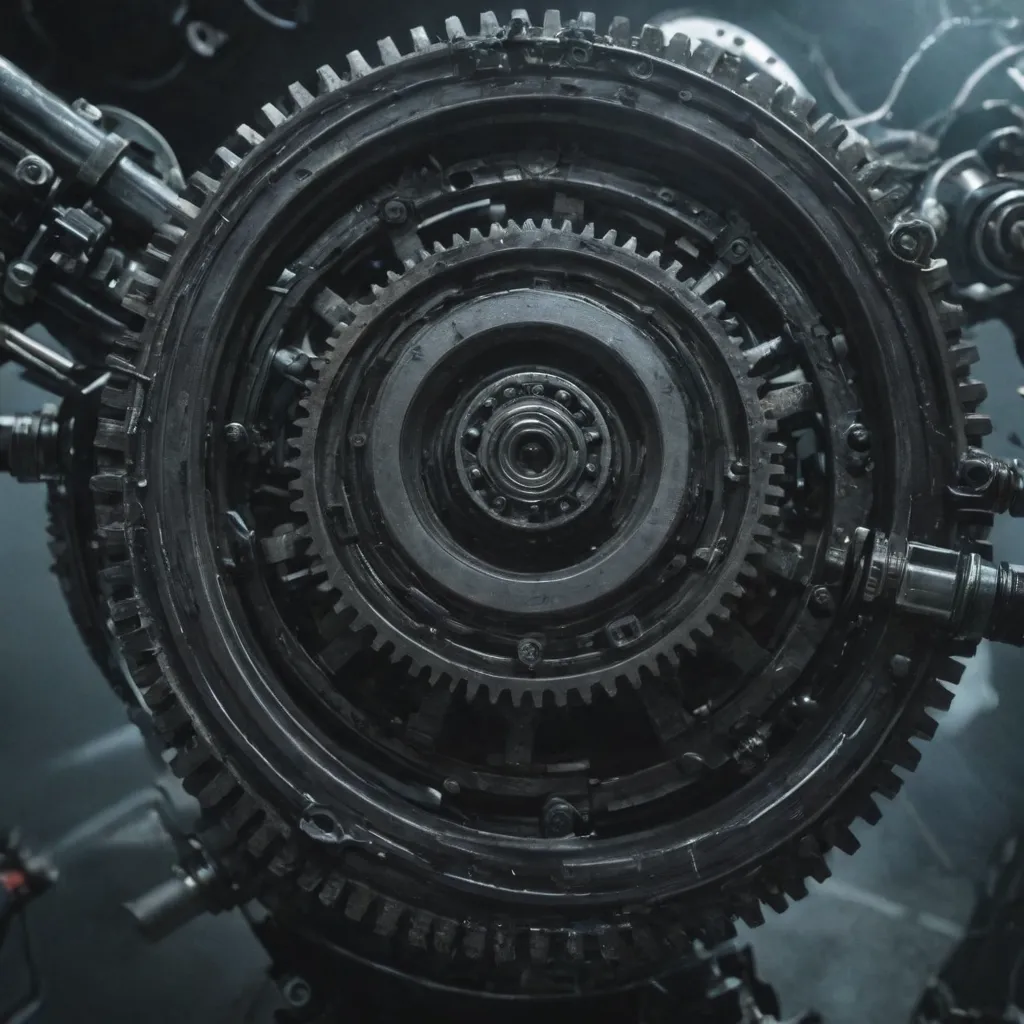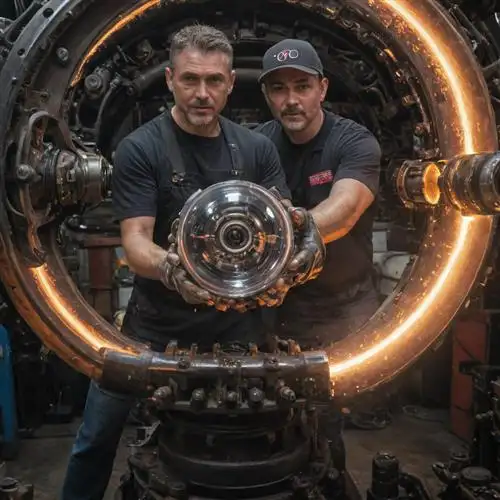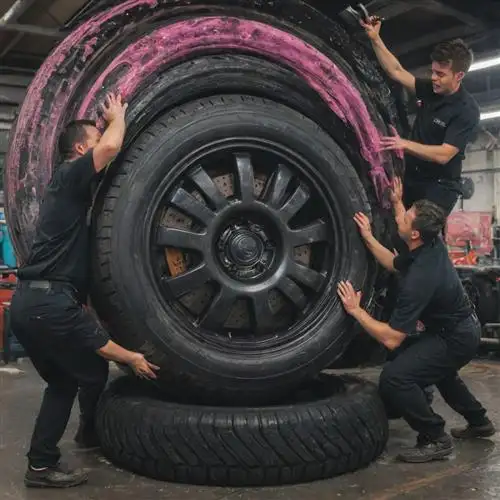
The Overlooked Oil Change Secrets
When it comes to maintaining the longevity of your Toyota Corolla, the oil change is often the most overlooked aspect. While it may seem like a mundane task, the way you approach oil changes can make a significant difference in the long-term performance and reliability of your vehicle. In this article, we'll unveil the secrets that the experts don't want you to know about maintaining your Corolla's oil system.
One of the most common misconceptions is that all oil changes are created equal. However, this couldn't be further from the truth. The type of oil you use and the frequency of your oil changes can have a profound impact on the health of your engine. Experts recommend using a high-quality synthetic oil, as it provides superior protection against wear, deposits, and thermal breakdown compared to conventional oil. Additionally, following the manufacturer's recommended oil change interval is crucial, as neglecting this can lead to premature engine wear and decreased fuel efficiency.
Another overlooked aspect of Corolla maintenance is the importance of oil filters. Many car owners simply opt for the cheapest option, not realizing that the quality of the oil filter can significantly impact the longevity of your engine. Investing in a high-quality oil filter that meets or exceeds the manufacturer's specifications can help to trap more contaminants and extend the life of your oil, ultimately saving you money in the long run.
One of the Secrets of Toyota Corolla Maintenance Experts is the importance of keeping a close eye on your oil level. Allowing your oil level to drop too low can lead to increased friction and wear within the engine, potentially causing costly damage. Experts recommend checking your oil level regularly and topping it up as needed, ensuring that your Corolla's engine remains well-lubricated.
Brake Maintenance Hacks That Will Shock You
Your Toyota Corolla's brakes are a crucial component that ensures your safety on the road. While regular maintenance is essential, there are some insider tips and tricks that the experts don't always share. Prepare to be amazed by these brake maintenance hacks that can save you time, money, and potentially even your life.
First and foremost, did you know that you can extend the life of your brake pads by simply adjusting your driving habits? Avoid sudden stops and instead, gently apply the brakes well in advance. This gradual braking not only reduces wear and tear on your pads but also improves your fuel efficiency. Additionally, remember to keep an eye on your brake fluid levels and have it flushed and replaced according to the manufacturer's recommendations. Neglecting this simple task can lead to costly brake system failures down the line.
Another often-overlooked aspect of brake maintenance is the importance of rotating your tires. This simple task helps ensure even wear on all four tires, which in turn helps maintain balanced braking performance. By rotating your tires every 5,000 to 7,500 miles, you can maximize the lifespan of your brake pads and rotors, saving you money in the long run.
One of the most surprising brake maintenance hacks is the use of a brake cleaning spray. This handy product can be found at any auto parts store and can help remove built-up grime and debris from your brake components. Simply spray it on and wipe away the residue, and you'll be amazed at how much better your brakes perform. Just be sure to clean the area thoroughly and avoid getting any of the spray on your hands or clothing, as it can be quite potent.
Tire Rotation Techniques the Pros Use
Proper tire rotation is essential for maintaining the longevity and performance of your Toyota Corolla's tires. While it may seem like a straightforward task, there are specific techniques that professional mechanics employ to ensure optimal results. One of the primary methods is the "X" pattern rotation, where the front tires are moved to the rear, and the rear tires are moved to the front, crossing in the process. This technique helps to evenly distribute wear across all four tires, preventing uneven tread depth and extending their lifespan.
Another technique used by experts is the "forward" rotation, which involves moving the front tires to the same position on the rear, and the rear tires to the front, but on the same side. This method is particularly useful for vehicles with front-wheel-drive or all-wheel-drive systems, as it helps to maintain the proper tire wear patterns and prevent premature wear on the more heavily loaded front tires.
When it comes to the frequency of tire rotation, the Toyota Corolla owner's manual typically recommends doing so every 5,000 to 8,000 miles. However, professionals may suggest a more frequent rotation, especially for vehicles that experience higher mileage or are used in demanding driving conditions, such as towing or off-road use. By rotating the tires more often, you can ensure that the wear is distributed evenly, reducing the risk of uneven tread wear and improving the overall handling and stability of your Corolla.
Additionally, experts emphasize the importance of using the correct tire size and type for your Toyota Corolla. Mixing different tire sizes or using improper replacements can have a significant impact on the vehicle's performance and safety. It's crucial to consult your owner's manual or speak with a professional to ensure that you're using the appropriate tires for your Corolla.
The Hidden Secrets of Fuel System Maintenance
Maintaining the fuel system in your Toyota Corolla is crucial for the vehicle's longevity and optimal performance. While many owners focus on routine oil changes and tire rotations, the fuel system often goes overlooked. However, neglecting this vital component can lead to a host of issues, from decreased fuel efficiency to costly repairs down the line. As experts in the field, we're here to shed light on the hidden secrets of fuel system maintenance that can help you keep your Corolla running smoothly for years to come.
One of the most important aspects of fuel system maintenance is regular fuel filter replacement. The fuel filter plays a vital role in removing impurities and contaminants from the fuel before it reaches the engine. Over time, this filter can become clogged, restricting the flow of fuel and leading to decreased engine performance. By replacing the fuel filter at the recommended intervals, you can ensure that your Corolla's engine is receiving the clean, unobstructed fuel it needs to operate at its best.
Another often-overlooked component of the fuel system is the fuel pump. This crucial component is responsible for delivering fuel from the tank to the engine, and a failing fuel pump can cause a range of problems, from poor acceleration to stalling. Regular inspection and replacement of the fuel pump, as per the manufacturer's recommendations, can help prevent these issues and ensure your Corolla's engine is receiving the consistent fuel supply it requires.
Fuel system maintenance also involves regular inspection and cleaning of the fuel injectors. Over time, these components can become clogged with deposits, reducing their efficiency and leading to poor fuel combustion. By using a fuel system cleaner or having the injectors professionally cleaned, you can help restore their performance and improve your Corolla's overall fuel efficiency.
Perhaps one of the most important, yet often overlooked, aspects of fuel system maintenance is the condition of the fuel tank itself. Rust, corrosion, and sediment buildup within the tank can compromise the fuel supply and lead to a range of issues. Regular fuel tank cleaning and inspection can help prevent these problems and ensure the fuel system is operating at its best.
Transmission Maintenance Tricks That Will Blow Your Mind
Maintaining your Toyota Corolla's transmission is crucial for its longevity and optimal performance. While many may assume that transmission maintenance is a complex and daunting task, there are several simple yet highly effective tricks that the experts often don't want you to know. In this in-depth article, we'll explore these hidden gems and provide you with the knowledge to keep your Corolla's transmission running smoothly for years to come.
One of the most overlooked aspects of transmission maintenance is the importance of regular fluid changes. Contrary to popular belief, the transmission fluid in your Corolla doesn't last forever. Over time, it can become contaminated with debris and lose its lubricating properties, leading to increased wear and tear on the internal components. By following the manufacturer's recommended fluid change intervals, you can ensure that your transmission is operating with fresh, clean fluid, which can significantly extend its lifespan.
Another lesser-known trick is the use of high-quality transmission additives. These specialized products can help to restore the fluid's properties, reduce friction, and even improve the overall efficiency of the transmission. While many mechanics may not recommend these additives, they can be a cost-effective way to maintain your Corolla's transmission and prevent costly repairs down the line.
A common issue with Toyota Corollas is the buildup of sludge and deposits within the transmission. This can lead to sluggish shifting, reduced responsiveness, and even complete transmission failure if left unchecked. To combat this, consider using a transmission flush service. This process involves removing the old fluid and thoroughly cleaning the internal components, ensuring that your Corolla's transmission is operating at peak efficiency.
















